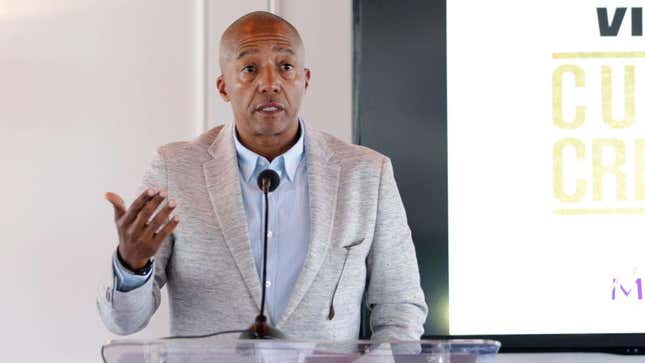
As Young Thug, Gunna and other members of Young Stoner Life face RICO charges, Kevin Liles, co-founder and CEO of 300 Entertainment, and Julie Greenwald, COO of Atlantic Records, have started a petition that goes against the use of rap lyrics as evidence.
The petition is called “Rap Music on Trial: Protect Black Art” and claims that prosecutors across the country have tried to use rap lyrics as evidence in court. They specifically point out how prosecutors in the YSL trial have used this exact same strategy to try to make the case against Gunna and Young Thug.
In the petition, Liles writes, “Today in courtrooms across America, Black creativity and artistry is being criminalized. With increasing and troubling frequency, prosecutors are attempting to use rap lyrics as confessions. This practice isn’t just a violation of First Amendment protections for speech and creative expression. It punishes already marginalized communities and silences their stories of family, struggle, survival, and triumph.”
In May, the New York Senate approved the “Rap Music on Trial” bill that limits the use of song lyrics in court. Many rappers including Jay-Z, Meek Mill, Killer Mike and Big Sean have urged the New York Senate to pass the bill because like Liles points out, it “denies rap music the status of art and, in the process, gives prosecutors a dangerous advantage in the courtroom.”
More from the “Rap Music on Trial: Protect Black Art Petition”:
Currently in Georgia, multiple artists belonging to Young Stoner Life Records – including Grammy-winning artists like Young Thug – are facing more than 50 allegations, including RICO charges which claim the record label is a criminal gang. The allegations heavily rely on the artists’ lyrics that prosecutors claim are “overt evidence of conspiracy.” In the indictment, Fulton County prosecutors argue that lyrics like “ready for war like I’m Russia” are a confession of criminal intent.
This shameful and un-American practice must end. We urge the prompt adoption of legislation at the Federal and State level that would limit how prosecutors can use creative and artistic expression as evidence against defendants in criminal trials. We applaud the New York State Senate for passing S.7527 – the “Rap Music on Trial” Bill – in May. We hope that it and similar Bills will become law across America to end this attack on our First Amendment freedoms that disproportionately harms Black and other minority artists.
We must protect Black art, creativity, and communities.
Just last week, Liles testified in court on behalf of the “Hot” rapper and spoke on the close relationship he has with the rapper.

